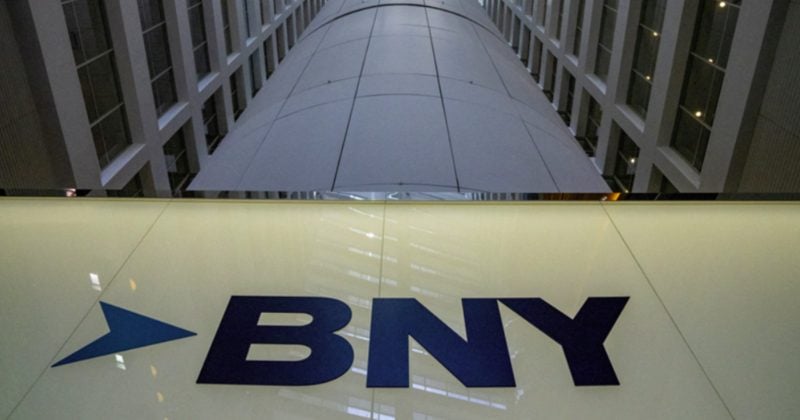Stablecoin issuers are moving toward bank charters in the United States, Tether is planning a U.S. product, and the Bank of England has proposed caps on holdings of systemic stablecoins.
Ripple has applied to form Ripple National Trust Bank, a federal trust institution that could custody assets and, subject to separate Federal Reserve decisions, seek account access to central bank payment rails.
Tether plans a U.S.-domiciled stablecoin called USAT, and DBS, Franklin Templeton, and Ripple agreed to enable trading of tokenized money market fund shares, which places bank-grade cash equivalents closer to on-chain payments and settlement.
The Bank of England has proposed limits of 10,000 to 20,000 pounds per individual wallet for systemic stablecoins, with 10 million pounds for businesses, a structure aimed at payment use and financial stability safeguards rather than large-scale savings balances.
The U.S. path now hinges on two linked outcomes, the federal trust bank perimeter and whether any issuer gains Federal Reserve account access.
The trust charter, as sought by Ripple, brings OCC supervision, fiduciary duties, periodic examinations, and formalizes how the issuer holds reserves in cash and short Treasuries.
The second step, Federal Reserve access, is discretionary and guided by the central bank’s Account Access Guidelines. Courts have affirmed the Fed’s ability to deny access in novel cases, which means a charter is a prerequisite but not a guarantee.
If a payment-stablecoin issuer were admitted, reserves could be placed directly at the Fed, earning interest on reserve balances. This would reduce duration and banking-counterparty risk and simplify liquidity management during redemptions.
If access is not granted, the reserve model continues to rely on T-bill ladders, government money market funds, and systemically important custodians.
The revenue mechanics are straightforward and quantify the policy stakes
With policy rates off their 2023 peaks but still positive, the carry on fully reserved balances remains meaningful at scale. Per Federal Reserve data, interest on reserve balances is about 4.4%, while 3-month bills sit around 4%.
That spread guides a simple two-track model for a dollar stablecoin in 2026. If an issuer such as Ripple’s RLUSD held $5 billion of average reserves and had Fed access, gross annual carry would be about $220 million at 4.4%.
If access is unavailable and reserves sit in 3-month bills, gross carry would be about 200 million dollars at 4.0%. Net figures depend on custody and administration costs, which are commonly discussed in a 10 to 20 basis-point range, before operating expenses and compliance.
ScenarioAvg reservesYield proxyGross carryFee drag (10–20 bps)Net before opexFed access, IORB$5.0B4.4%$220M$5–10M$210–215MNo access, T-bill ladder$5.0B4.0%$200M$5–10M$190–195M
This carry math also clarifies competitive conditions. Fed access would allow a bank-chartered issuer to advertise a cash reserve profile at the central bank, simplifying liquidity risk, and may compress external custody fees.
Without access, the economics converge on short Treasury yields minus fees, which is workable at scale but less differentiated.
The policy question is therefore less about whether stablecoins can be fully reserved, and more about whether reserves sit at the central bank or in market instruments with custodians. That distinction informs how fast redemptions clear in stress and the capital that intermediaries require to stand behind settlement.
Tether’s planned USAT adds a second U.S. pathway.
Tether intends to issue a U.S. product that aligns with federal guardrails and disclosure regimes, which would allow onshore distribution with U.S.-based custodial partners.
If USAT obtains broad listings across U.S. brokers, payments, and fintech networks after launch, the U.S. market share could shift over several quarters.
A base case of 5% to 10% U.S. share by late 2026 assumes gradual approvals and integration cycles, while a high case of 10% to 20% assumes faster merchant onboarding and wallet distribution.
The split model, with USDT focused offshore and USAT onshore, diversifies regulatory exposure and may narrow the U.S. distribution advantage of incumbents that moved earlier on U.S. licensing.
In the United Kingdom, the proposed caps would reframe how GBP-pegged stablecoins are used. The Bank of England’s approach is designed for payment functionality and orderly redemption under stress, rather than large discretionary balances.
Caps constrain consumer stores of value and corporate treasury balances, and the Financial Conduct Authority’s consultation proposes same-day or next-day redemption expectations that push backing portfolios toward very short-duration instruments.
That combination limits yield and makes the business model resemble a narrow bank or e-money program. UK-based DeFi liquidity would face natural ceilings because domestic users, trading venues, and liquidity providers could not warehouse large GBP balances on chain.
Cross-border users and EU or U.S. venues would continue to intermediate larger pools without UK caps, which shifts depth away from GBP trading pairs sourced in the UK.
A simple utilization model shows how the cap shapes addressable float.
Using a midpoint 15,000 pounds per wallet and a 25% to 40% utilization haircut for compliance and off-ramping behavior, retail float scales even with adoption, then plateaus.
The plateau is not permanent because additional wallets and merchant balances add capacity, but the cap changes the slope.
Retail usersCap per walletUtilizationPotential consumer float4 million£15,00025–40%£15B–£24B6 million£15,00025–40%£22.5B–£36B
These constraints shift the center of gravity toward merchant acquiring, card networks, and bank tokenized deposits, since payment use can scale through throughput rather than cached balances.
For crypto-native activity, UK wallets would move value through GBP rails for settlement, then recycle into USD or EUR stablecoins or tokenized money market funds where permitted. The DBS, Franklin Templeton and Ripple arrangement is relevant here.
Tokenized money market funds give exchanges and payment firms a way to hold cash equivalents in a form that is compatible with blockchain settlement and brokerage operations.
A combined stack in which a regulated issuer handles the payment token and a regulated asset manager handles the cash equivalent reduces the distance between money market instruments and transactional money, although governance and redemption mechanics remain distinct.
The question of winners depends on the jurisdiction.
In the United States, combining a national trust charter and adherence to federal stablecoin rules should favor issuers that can meet bank-grade compliance, publish reserve disclosures at a monthly cadence, and integrate with traditional payment networks.
If a first issuer gains Federal Reserve account access, the reserve advantage would reset the competitive frontier because the balance sheet would be centered on central bank money, not custodied market instruments.
In the United Kingdom, caps and redemption standards favor payment providers, banks, and tokenized deposit models, while they constrain large on-chain GBP balances for speculative or liquidity-provision purposes.
In both cases, reserve income will compress if rates fall, which puts more weight on scale, operating efficiency, and distribution.
Mentioned in this article



























